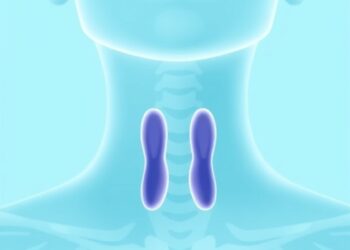UNIVERSITY PARK, Pa. — Children who report being more empathetic are more likely to show signs of poorer health in the face of more interparental conflict than less empathetic children, according to a new study led by researchers in the Penn State College of Health and Human Development.
UNIVERSITY PARK, Pa. — Children who report being more empathetic are more likely to show signs of poorer health in the face of more interparental conflict than less empathetic children, according to a new study led by researchers in the Penn State College of Health and Human Development.
The study, led by Hannah Schreier, associate professor of biobehavioral health and co-funded faculty member in the Social Science Research Institute, was recently published in the journal Brain, Behavior, and Immunity.
“For children this age, 7 to 9 years old, the family home and parents are important, so observing conflict between the parents can be stressful,” Schreier said. “And we now know that children may react negatively to perceived conflict from a physiological point of view.”
The researchers used survey- and blood sample-derived data from home visits with 106 children between 7 and 9 years old and their parents participating in Family Foundations, an initiative led by co-author Mark Feinberg, research professor in the Edna Bennett Pierce Prevention Research Center (PRC), that evaluates the effectiveness of a perinatal coparenting intervention for first-time parents. Prior research from that on-going study shows that parents who took Family Foundations classes had more positive family relationships and experienced less conflict across the family, as well as between parents or children.
The surveys assessed both the children’s perception of interparental conflict, including whether they felt threatened and whether they felt they were at fault when their parents fought. The children also self-reported on their empathy, including whether they felt sorry when other people were sad and whether they cared about the feelings of others. The parents provided ratings of overall child health on a scale from excellent to poor.
The researchers also analyzed C-reactive protein (CRP) and interleukin-6 (IL-6) levels in blood samples collected from the children. Increased levels of CRP and IL-6 indicate higher levels of chronic inflammation in the body.
Inflammation is a key aspect of the body’s immune response. Acute, or short-term, inflammation is an important response to a specific injury and can help the body to heal. Chronic inflammation does not have a specific source or injury causing it. This chronic, background inflammation, which isn’t necessarily concerning in the short-term, is related to long-term negative health effects when elevated over a long period of time. Prior research has linked chronic inflammation to cardiovascular disease risk, diabetes and certain types of cancer, among other things.
From these self-reported and biological measures, the researchers determined that children who reported being more empathetic had higher levels of CRP, which is suggestive of greater levels of chronic inflammation, and worse parent-reported overall health when perceiving more interparental conflict.
Critically, the researchers said more empathetic children did not report greater levels of conflict in the home. Additionally, children reported on regular, daily conflict that did not rise to the level of violence or domestic violence.
Schreier said it is particularly important to have these results for younger children, who had largely been omitted from previous research on possible physiological consequences of empathy and conflict. For this age group, the results also have implications that extend far beyond the household.
“These results raise interesting questions about children’s home and school environments,” she said. “Empathy is important, especially at this life stage, but it doesn’t make sense to push more empathy teaching toward all kids. Some kids might need help understanding when it is okay to set boundaries and how to find a balance between being aware of how others feel, but not taking on every little thing that happens.”
The result could impact future educational programs, as it highlights the importance of addressing individualized needs, Schreier said.
“The main message in our society is that empathy is good, and it’s beneficial to us to be surrounded by people who are more empathetic,” Schreier said. “But empathy can have positive and negative impacts. We don’t talk a lot about what it means for the person who is more empathetic and what it is like taking on everyone else’s emotions. Our work adds to a growing literature showing that being more empathetic may have adverse consequences on your health.”
Jennifer Graham-Engeland, professor of biobehavioral health; Damon Jones, associate research professor in the PRC; and Aishwarya Ganguli and Caitlin Givens, graduate students in the Department of Biobehavioral Health, also contributed to this research.
The National Institutes of Health funded this research.
Journal
Brain Behavior and Immunity
Method of Research
Survey
Subject of Research
People
Article Title
Children’s empathy moderates the association between perceived interparental conflict and child health
Article Publication Date
1-May-2024




